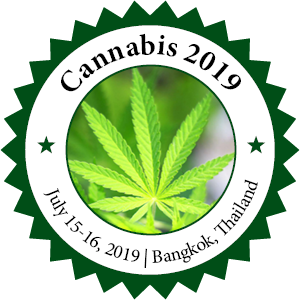Kenzi Riboulet-Zemouli,
European Institute for Multidisciplinary Studies on Human Rights and Science (Knowmad Institut), Spain
Title: ASSESSMENT OF CANNABIS AND CANNABINOIDS BY THE WORLD HEALTH ORGANIZATION : IMPACTS & PERSPECTIVES FOR CANNABIS AND CANNABINOID-RELATED MEDICINE AND RESEARCH
Biography
Biography: Kenzi Riboulet-Zemouli,
Abstract
The World Health Organization (WHO) is the leading standardization entity and public health referent globally. Beside this role, WHO is also directly mandated by the International Drug Control Conventions (IDCC) as the provider of official scientific and independent assessments of drugs for the purpose of scheduling (i.e., determining the extent of use-related harms and the scope of therapeutic properties of psychoactive plants, fungi, products or substances in order to categorize and hierarchically list them) within the IDCC. Different sorts and categories of products and substances derived from the Cannabis sativa L. plant are currently scheduled within the IDCC, although having never been assessed by the WHO or the international organizations with similar mandate preceding the WHO before the 2nd World War. For this reason, the WHO has been undertaking since 2016 a process of review and assessment of these Cannabis-related products and substances, recommending important changes in their level and status of scheduling within the IDCC. We comprehensively followed the WHO assessment processes and reviewed the contents submitted to its Experts in charge of the assessment at all stages. We analysed the outcome, and estimated the impacts and consequences of the changes in IDCC scheduling status of Cannabis-related products and substances for the medical and research fields. Our results show that the new official position of the WHO conveyed by the outcome of its Experts acknowledges that Cannabis is legitimate in medicine, consider herbal Cannabis less dangerous than other substances placed in Schedule I of the 1961 Convention, encourage governments to provide access to a variety of formulations while leaving them a wide discretion in the choice of products to regulate, and flexibility of policies to implement. Our research concluded to a clarified international policy landscape that calls for the involvement of other international tools, such as the frameworks developed by WHO for the safe and regulated use of herbal and phytomedicines and their pharmacovigilance.

